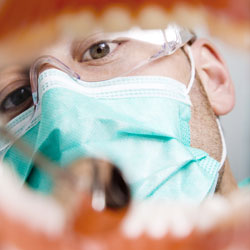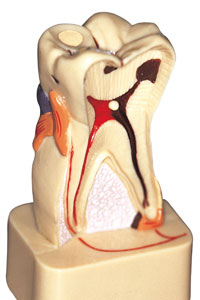 In a previous blog post, we discussed the effects gum disease can have on your health, as well as what our team here at Papageorgiou Dental Associates could do for you in regards to periodontal therapy. But all of your questions might not have been answered. For instance, maybe you’re been wondering if you have gum disease, and if you do, how severe it is. After all, pain isn’t the only indicator that there could be a problem, as some would believe. Here at our Natick office, we offer you personalized and effective care that always puts your needs first – but first, you have to take that first step through the door. Here are some of the indicators of gum disease:
In a previous blog post, we discussed the effects gum disease can have on your health, as well as what our team here at Papageorgiou Dental Associates could do for you in regards to periodontal therapy. But all of your questions might not have been answered. For instance, maybe you’re been wondering if you have gum disease, and if you do, how severe it is. After all, pain isn’t the only indicator that there could be a problem, as some would believe. Here at our Natick office, we offer you personalized and effective care that always puts your needs first – but first, you have to take that first step through the door. Here are some of the indicators of gum disease:
- If your gums bleed during or after you brush your teeth
- If you have bad breath that persists even after using mouthwash and other treatments
- Tenderness, swelling, or discoloration
- A bite that feels strange, or teeth that start to feel loose, like they’re shifting around
- Pockets of pus that ooze around your teeth
- If chewing is painful
- Receding gums or teeth that are no longer appearing
In addition, there are also a number of factors that indicate a much higher risk of gum disease than normal. These are:
- If you use tobacco
- If you have diabetes
- If you’ve undergone therapy for cancer of any kind
- If you’ve taken steroids at any point in time
If any of these categories or symptoms seem to fit you, don’t panic – using either traditional tools or our soft-tissue laser, our team at Papageorgiou Dental Associates will help ease your gum disease symptoms and improve your overall health through periodontal therapies, giving you a reason to smile.
Gum disease can worsen if not treated, so don’t hesitate! Call Papageorgiou Dental Associates today to schedule your consultation visit. Dr. Christina Papageorgiou would be happy to assess your oral health and recommend a treatment plan. Our team serves patients from Natick, Framingham, Wellesley, Wayland, Weston, Ashland, Sherborn, and beyond.


 Out of all the dental procedures you could undergo as a patient, root canal treatment seems to be the one that makes the most people cringe in fear. Maybe that’s because of the longstanding rumor about it being unbearably painful, or simply because it’s a long procedure that seems incredibly invasive. Whatever the case is, root canals are not as bad as they’ve been built up to be over time. In fact, they’re a crucial and effective treatment that can save your natural teeth from having to be extracted due to extensive decay or infection.
Out of all the dental procedures you could undergo as a patient, root canal treatment seems to be the one that makes the most people cringe in fear. Maybe that’s because of the longstanding rumor about it being unbearably painful, or simply because it’s a long procedure that seems incredibly invasive. Whatever the case is, root canals are not as bad as they’ve been built up to be over time. In fact, they’re a crucial and effective treatment that can save your natural teeth from having to be extracted due to extensive decay or infection. Dental emergencies strike without warning. Do you know what to do when one hits you? Many don’t, which is why we’d like to use today’s post to briefly explain what you should do if you find yourself facing a dental emergency. Below are some of the most common reasons patients have for seeking emergency dental care, followed by tips on how to handle them.
Dental emergencies strike without warning. Do you know what to do when one hits you? Many don’t, which is why we’d like to use today’s post to briefly explain what you should do if you find yourself facing a dental emergency. Below are some of the most common reasons patients have for seeking emergency dental care, followed by tips on how to handle them.